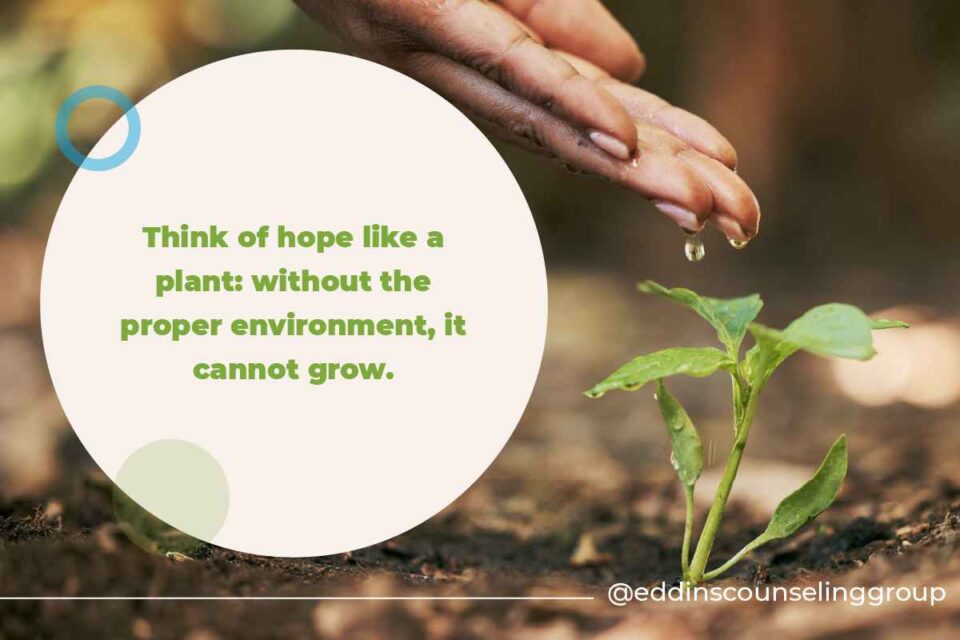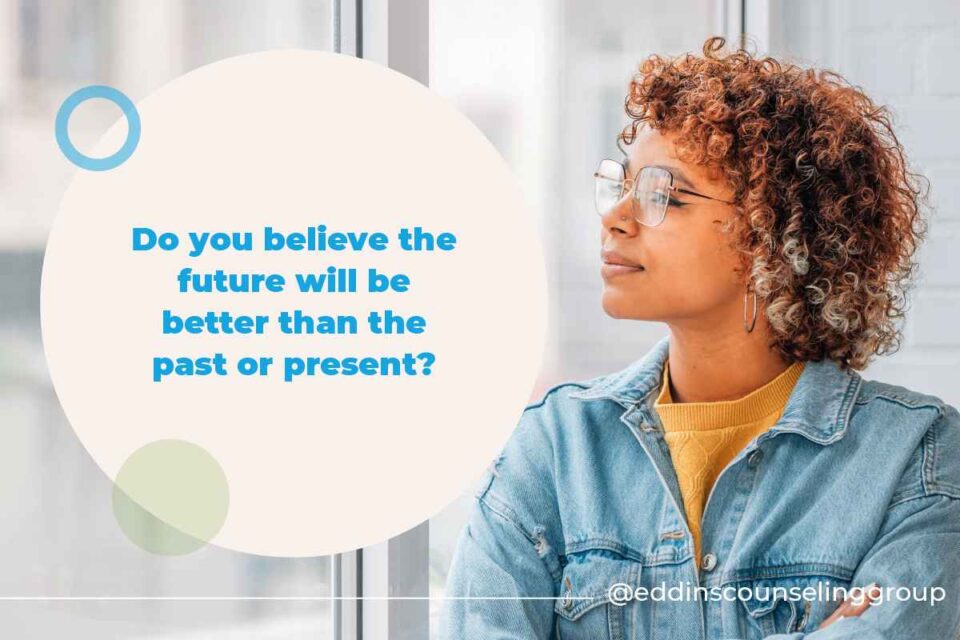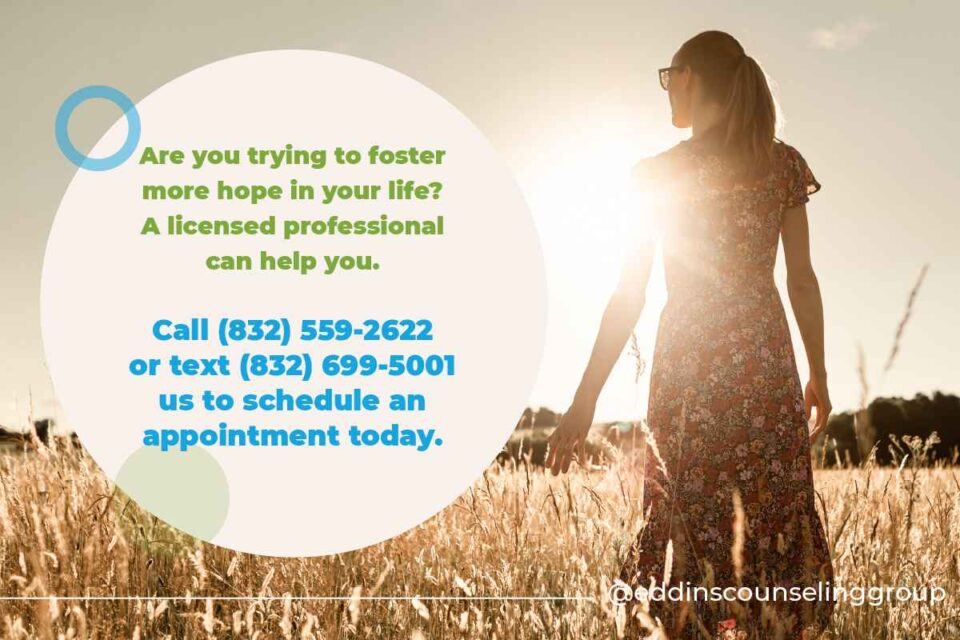March 6, 2023
What Is Hope & How You Can Get More Of It
Written by Sara Lane
Posted in Depression and with tags: hope, mindfulness
What Is Hope?
Merriam-Webster defines hope as “desire accompanied by expectation of or belief in fulfillment.” However, a dictionary definition can’t fully explain the concept of hope and how it pertains to our lives and mentality.
Instead, we’ll have to take a closer look at the psychological aspects of hope and what it means to feel “hopeful.”
Generally speaking, people feel hopeful when they believe the future will be better than the past or present.
On an individual scale, someone who feels hopeful has a more optimistic worldview and is willing to work towards goals they set for themselves.
While hope itself isn’t an emotion, it is tied with more positive emotions and outlooks.
Why Do We Lose Hope?
Hope isn’t necessarily something people can physically lose, like a set of keys or a phone, but it is something that can fade or weaken over time.
Think of hope like a plant: without the proper environment, it cannot grow.
Stressful environments are the least welcoming for hope to grow. Someone may lose hope or feel hopeless if they experience an extreme stressor or life change, like:
- Losing a job
- Breaking up with a long-time partner or friend
- Coping with death
- An existential crisis
- A life-changing traumatic event
Some people may feel their hope start to wane if they experience chronic stressors as well, like:
- Chronic pain
- Prolonged exposure to a stressful situation
- Depression or anxiety
- Financial stress
Hope and Depression
As we’d briefly mentioned, hopelessness is a common symptom of depression. In fact, many people experiencing depressive periods include feelings of hopelessness as a common symptom.
When you’re feeling depressed, it’s very easy to lose hope or feel like you’ve never had any in the first place.
However, depression is also a mental health condition identified by changes in someone’s cognition.
People with depressive disorders like Seasonal Depression and Major Depressive disorder experience periods where their brains act differently on a chemical level from how they do on a non-depression day.
In short, hopelessness is something that will pass, even if you have depression.
There are plenty of skills out there that are at your fingertips to help you work through periods of hopelessness– you just might need some help finding them.
Other Symptoms of Depression
Hopelessness isn’t the only symptom of depression either. Depression has many other identifying symptoms, including:
- Feeling tired or lacking energy
- Insomnia or oversleeping
- Loss of interest or pleasure in usually enjoyable activities
- Anxiety, agitation, or restlessness
- Difficulty thinking, concentrating, or making decisions
- Slowed reaction time, speech patterns, or cognitive processes
- Feelings of worthlessness and guilt
- Fixation on past events and experiences
- Unexplainable pain, usually joint, back, or muscle pain
- Thoughts about suicide, self-harm, or death in general
If you or a loved one experiences any of these symptoms for several days, speak with a mental health professional immediately.

Ways to Find and Foster Hope in Your Life
So, how can we find hope when we’re feeling hopeless?
For some, it’s pretty easy to bounce back, but others may need a little help remembering what they can do to feel hopeful again.
If you’re feeling hopeless and need some hope in your life, try to:
Set Small Goals
If hope is directly connected with the ability to look forward to something, why not try finding something to look forward to?
Setting small, manageable goals can get you back on track toward looking at the big picture and your larger ambitions.
Your goals don’t necessarily have to be anything special, either. Your goal could be something like:
- Finishing a book you’re reading or a show you’re watching
- Baking or cooking something for yourself
- Getting outside for a walk
- Taking a shower
Take Time for Yourself
Sometimes, we feel hopeless when we’ve been going and going and going.
If you’re starting to feel burnt out, take a break!
While taking time for yourself doesn’t necessarily mean spending time alone, you can do whatever you like to avoid work obligations for a while and rest.
Check on Your Needs
If you’re feeling hopeless, it’s the perfect time to check your basic needs.
- Have you eaten?
- Had something to drink?
- Have you gotten enough sleep?
- When did you last talk to someone?
Many times, feelings of depression, anxiety, and anger are signs from our bodies that we need something.
Practice Mindfulness with Little Things
Another way to work yourself out of hopelessness is to find beauty in little things.
Using mindfulness techniques and focusing on the world around you is a great way to observe and reconnect with things that you enjoy.
Try to experience something simple, but lovely at least once every day, whether it’s a warm cup of coffee or a few minutes of fresh air.
Exercise and focusing on your body is also a fantastic exercise in mindfulness, too.
By moving and paying attention to your surroundings while you work out (whether it’s something like weight lifting or just a walk outdoors) gets your blood moving and your body working in the present moment.
Plus, it might also get you out of the house!
Spend Time with Loved Ones
Humans are social creatures. When we’re feeling down, looking for support from our loved ones is natural!
If you’re feeling down or like there’s nothing to look forward to in life, talk with someone you love.
Not only will spending time with them occupy your brain for a bit, they might be able to help you find some things to look forward to.
Speak to a Therapist
If your feelings of hopelessness last for a while, or if you need someone to talk to that’s a bit more professional than a loved one, consider speaking with a therapist about your feelings.
Therapists are an excellent resource for teaching people about themselves, and how they can best cope with depression, anxiety, and stressful situations.
Remember, you are not alone in your experiences– a licensed professional can help you work through the most difficult topics, including thoughts of suicide or self-harm.
If you need some assistance or want to schedule an appointment with one of our Houston, Montrose, or Sugar Land therapists, give us a call (832) 559-2622 or send us a text (832) 699-5001.
7 Mood-Boosting Tips
Get instant access to your free ebook.
Grounding & Self Soothing
Get instant access to your free ebook.
Why You Feel This Way
Get instant access to your free ebook.
Create Healthier Thoughts & Feelings
Get instant access to your free ebook.



















